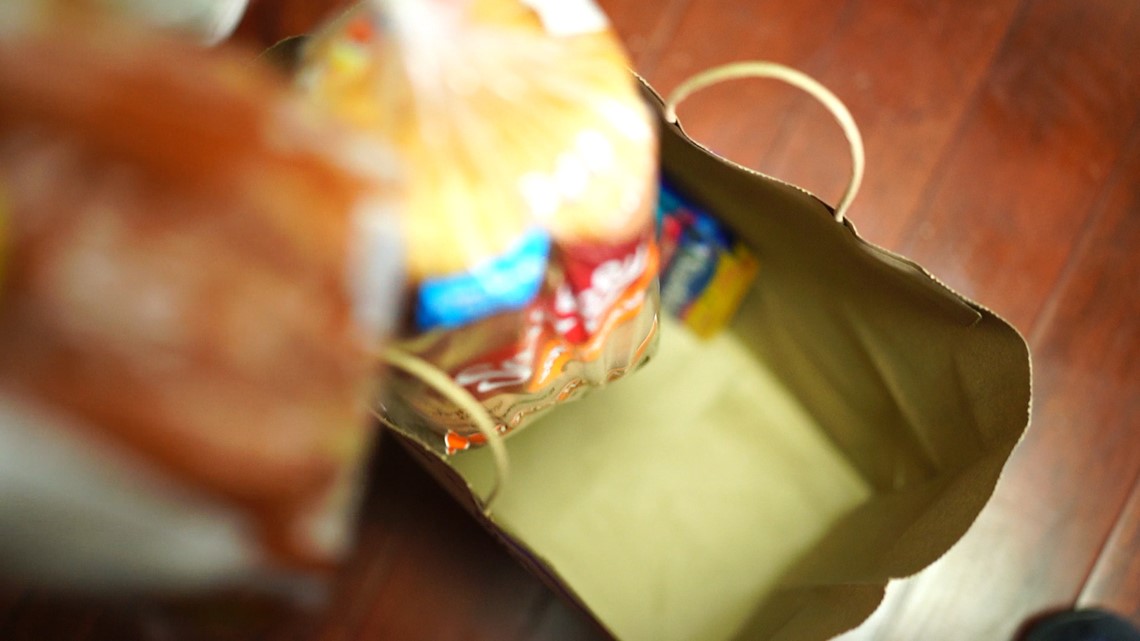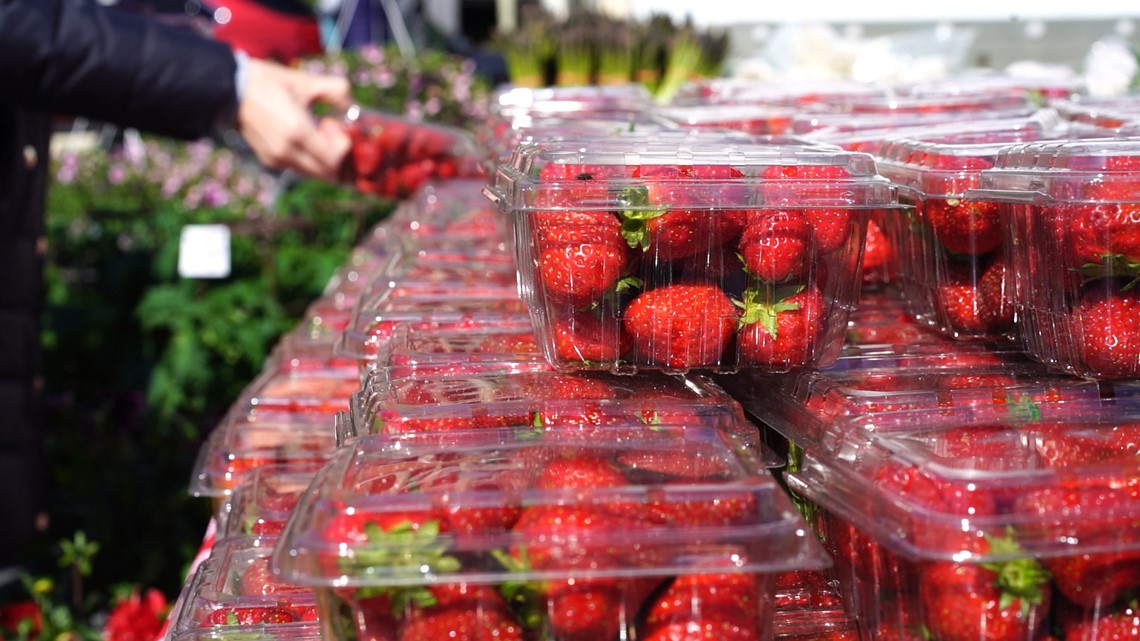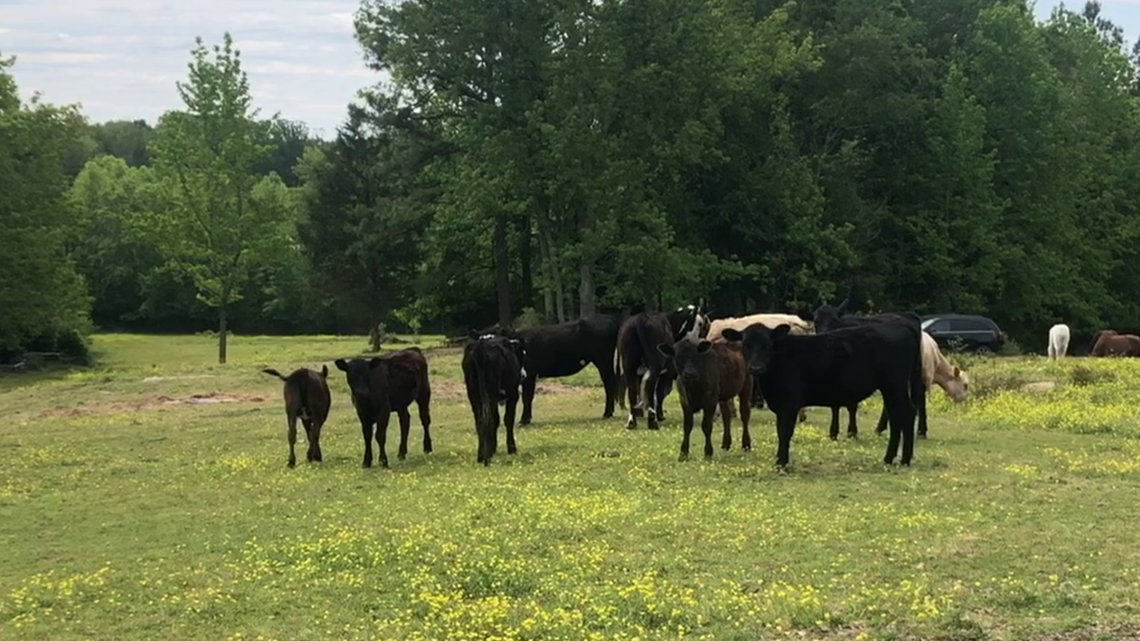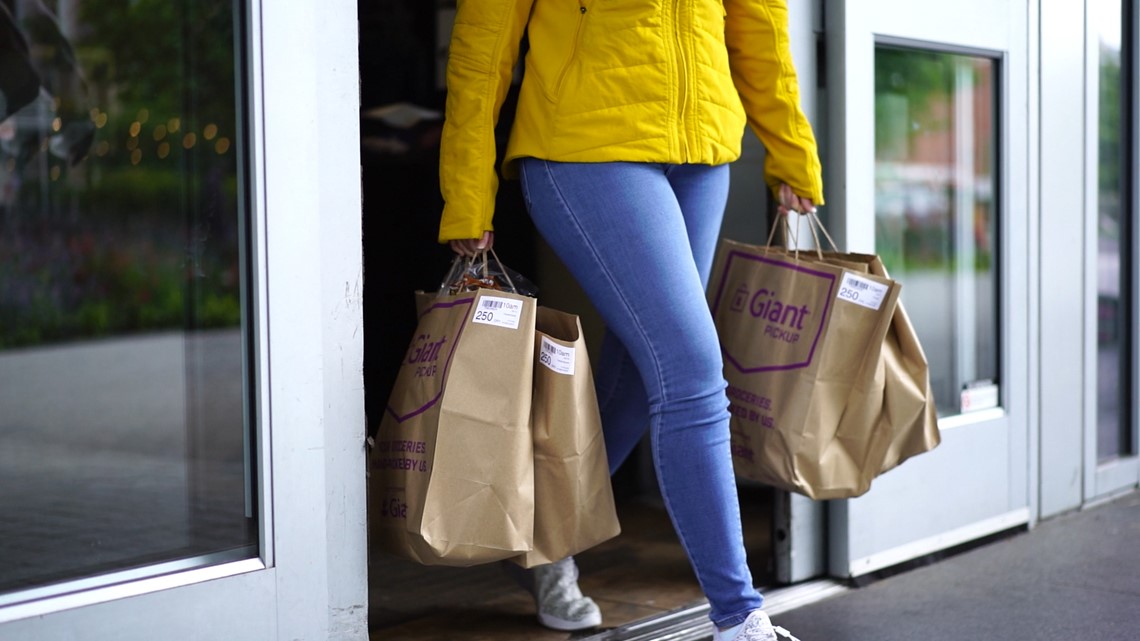DAVIDSONVILLE, Md. — Getting food on your table requires a team of people across the country all working together in the middle of the pandemic. How can we expect the food supply chain to keep working through COVID-19?
"What we’re seeing is lots and lots of stockpiling," Dr. Sara Bleich, who studies food availability at Harvard University, said. "So people are going to the supermarket less frequently and when they go, they’re buying a whole lot more stuff. What this raises is equity issues, because if you are low income and have a fixed amount of money that you’re living on, you can’t do that. If you live in a small apartment, you may not have space to actually stockpile food."
That stockpiling was apparent as cars lined up for miles in Davidsonville, Maryland on May 2 to buy 30,000 pounds of chicken at a discount, direct from a poultry company. Customers say they lined up for the low prices and perceptions of future meat shortages.
"I think what we’re seeing is the stress that COVID-19 is putting on the food system is obviously being felt by everyone, but it is acutely felt by low-income populations," Bleich said.


There are some limited grocery shortages that for now depend on location. Avoiding the lines by shopping online can prove hit or miss.
"For specialty crops, I think we are going to begin seeing a disruption," Bleich said. "You might begin to start eating things a little more seasonably because of that. Farming these crops brings up issues with social distancing. Strawberries for example, have to be harvested in like a three-day window, and you have to bring in all these workers and then you have issues around social distancing."


We asked WUSA9 viewers what products they’re missing most from store shelves. Answers ranged from pancakes to frozen meals, flour and yeast. We noticed similar outages with online pickup. Some stores are also only allowing two orders of each type of meat due to "high demand."
"COVID-19 is really been trying for us," John Boyd, president of the National Black Farmers Association, said speaking from his Virginia farm.
Some of his association’s livestock isn’t being processed into meat because slaughterhouses are closed due to COVID-19 cases.


"Farmers are destroying livestock such as poultry and beef cattle," Boyd said.
Boyd adds that major banks are not extending credit now during planting season and adds that small farms have not been receiving the paycheck protection program payments for farm loans.


But help could soon be on the way. The Small Business Administration that runs the program said that with new stimulus funding, they began accepting new farm aid applications last week.
"I believe that we need to focus more on small-scale farmers and work with farmers in your area on a smaller scale and not depend solely on large-scale corporate America to help feed America," Boyd said.
Before the pandemic, Miller Farms in Prince George’s County sold most of its produce to D.C. area restaurants. Now it sells direct to drive-through customers.
"Fresh as it gets -- there’s no transportation from across the country, different states," Adam Miller said. "Right here in Clinton, Maryland, Prince George’s County, this is the new normal, I believe, at least for the next six months to a year."
But according to the Consumer Brands Association, their nationwide surveys show people are getting over the initial shock of pandemic shutdowns.
"Since about the middle of March, confidence has increased that the products they’re going to need, they’re going to be able to find on the shelves," CBA Vice President Bryan Zumwalt said.


Trucking bottlenecks once happening in March are beginning to clear with increased road speeds coming from less freeway traffic, and more open rest stops.
"The reality is, despite a lot of the major concerns that might have happened as it relates to the supply chain, it’s proven to be pretty darn resilient," Zumwalt said.

